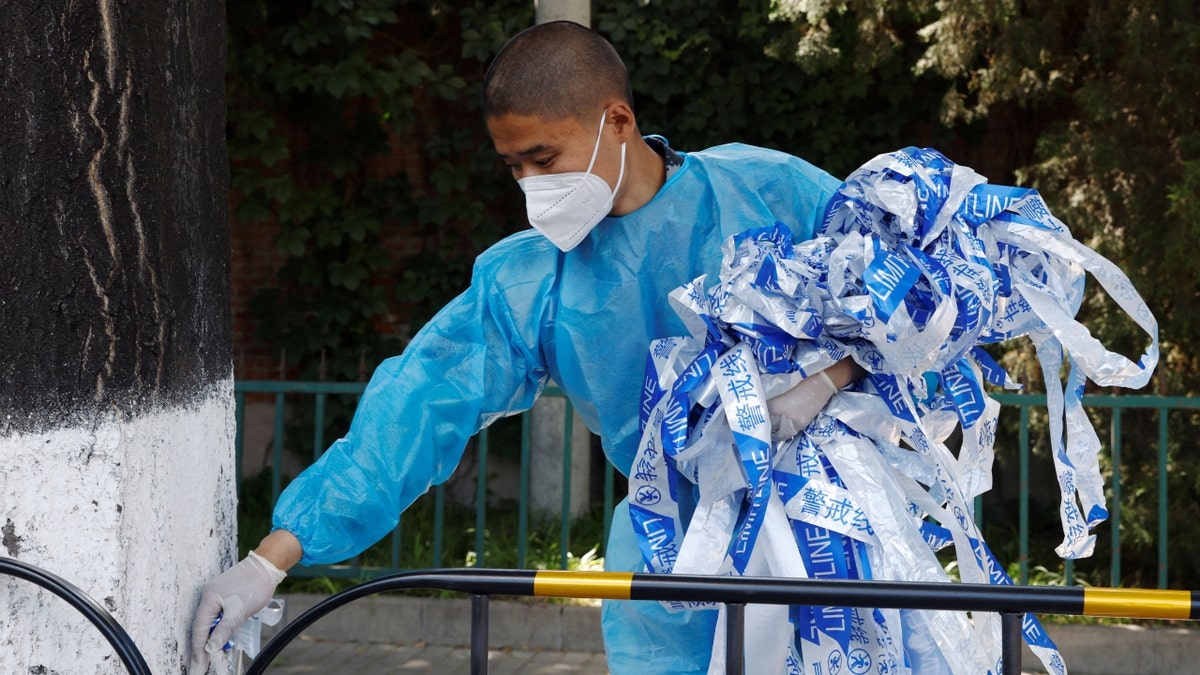Fox News Flash top headlines for June 28
Fox News Flash top headlines are here. Check out what's clicking on Foxnews.com.
China slashed the quarantine time for inbound travelers by half on Tuesday, in a major easing of COVID-19 curbs that have deterred cross-border travel and resulted in international flights running at just 2% of pre-pandemic levels.
Quarantine at centralized facilities has been cut to seven days from 14, and subsequent at-home health monitoring has been reduced to three days from seven, the National Health Commission said.
China's adherence to strict anti-COVID measures even as the rest of the world tries to live with the virus has battered its economy, frustrated businesses and infuriated many of the millions people caught up in draconian lockdowns in cities like Shanghai.
WHAT TO DO IF YOU GET MONKEYPOX: SYMPTOMS, VACCINATIONS, AND TREATMENTS
In recent months, China has cautiously eased curbs on cross-border travelers, with health officials saying the shorter incubation period of the Omicron variant allows for an adjustment of quarantine time.
And earlier this month, China's aviation regulator said it had been in touch with some countries to steadily increase flight numbers in the second half of 2022.
The new quarantine rules were welcomed by American, British and European business lobby groups in China.

A worker in a protective suit removes cordon lines near fences amid the coronavirus disease (COVID-19) outbreak in Beijing, China May 25, 2022. (REUTERS/Carlos Garcia Rawlins)
"It will hopefully work towards increasing business exchanges and stemming the outflow of international talent, some of whom are coming up to having had three years of separation from family and friends overseas," the British Chamber of Commerce in China told Reuters.
While welcoming the change, the European Chamber of Commerce in China cautioned that it remained to be seen whether all local authorities would follow the new, more relaxed rules.
Stock markets rose in Hong Kong and the mainland, with the Hang Seng Index reversing losses and ticking up 0.9% and the CSI300 Index gaining 1%.
Shares in mainland tourism companies jumped more than 5%.
IN THE CLEAR
Beijing and Shanghai reported on Tuesday no new local COVID infections, the first time both cities were in the clear simultaneously since late February.
Their daily caseloads dropped to single digits over the past week, allowing Shanghai to gradually resume eating in at restaurants and Beijing to reopen some leisure venues including the Universal Beijing Resort.
The Walt Disney Co's Shanghai Disney Resort said on Tuesday that it would reopen the Disneyland theme park on June 30; it had been shut for more than three months.
Authorities, however, were adamant the government's so-called dynamic zero COVID approach, a signature policy of President Xi Jinping that aims at blocking flare-ups from spreading as they crop up, remains in place.
Beijing would "fight against any new outbreaks at the outset and with speed and resolutely break their transmission channel", Cai Qi, the city's top Communist Party chief, was quoted as saying in a report by the party-backed Beijing Daily.
Earlier on Monday, the Beijing Daily apparently misquoted Cai as saying the city would maintain its COVID control effort for "the next five years".
The newspaper afterwards removed the reference and its chief, Zhao Jingyun, said it was an error but that did not prevent some suspicion among the public.
CHINA’S HARDLINE COVID LOCKDOWNS TAKING BITE OUT OF ECONOMY, HURTING DEMAND
"Surely it wasn't a mistake! It's meant to gauge public opinion!" said a user of the Weibo social media platform.
Another Weibo user said even if it was a mistake, "at least the higher-ups are now aware of how helpless we all feel and how we detest the current counter-epidemic policies."
